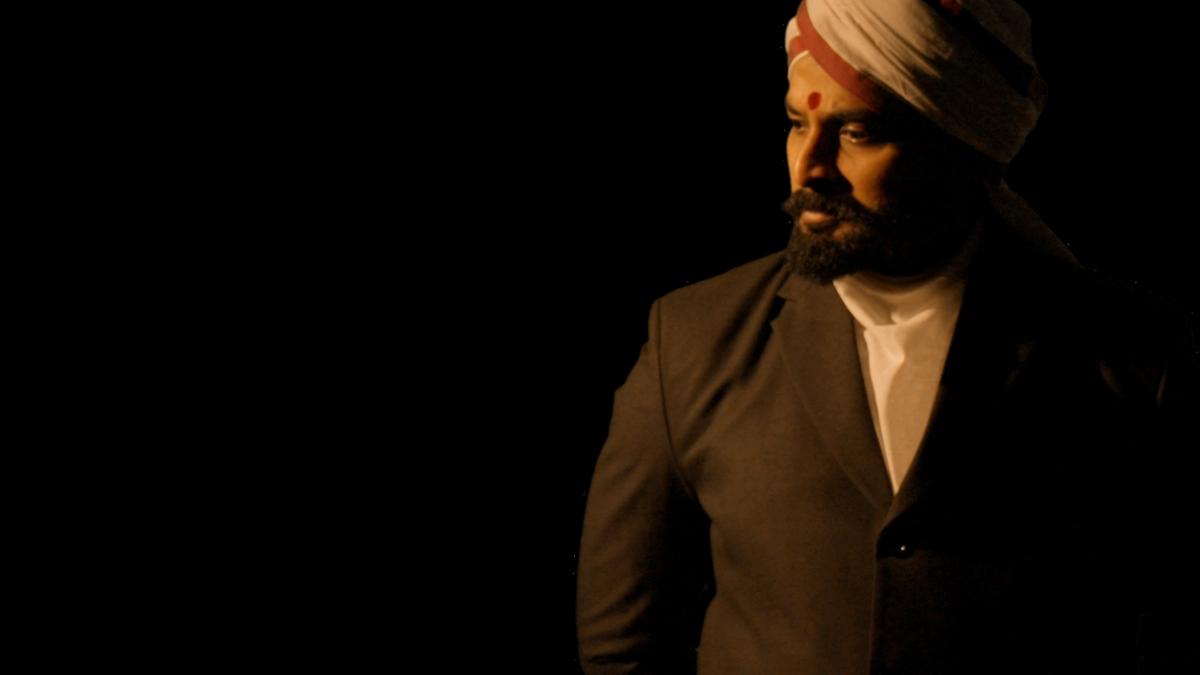In his short lifetime of 38 years (1882-1921), Subramania Bharati left an indelible mark on Tamil society. His rousing poetry and prose introduced many to the concepts of patriotism and female emancipation, and enhanced them in those who already possessed it. His love for the country, and towards his Parasakthi, the divine feminine are well-known. The nimirndha nannadai (graceful walk with head held high) and nerkonda paarvai (straightforward vision) he visualised women to possess still serve as an inspiration to some and an aspiration for others.
Despite multiple readings of Bharati’s life over the ages, there’s still scope to analyse the various facets of his life. And, that’s what the film Shaktidasan (devotee of Shakti), by director Usha Rajeshwari sets out to do.
The 70-minute film that’s part documentary and part drama, also features illustrations (by S.A.V. Elaiyabarathy) and shadow play. Scholars on Bharati, his family members and those familiar speak about him, while actors enact certain important aspects of the patriot-poet’s life. Among these are the people who turn out to be very important in his spiritual and political journey — Swami Vivekananda, Aurobindo and Sister Nivedita, who is his guru, and the washerman Kullachami, who makes him understand that only through experience can he feel/experience God. Many of these meetings and the pondering that followed transformed Bharati from a free thinker to a devotee of Parashakti.
The film has been shot in places the poet visited and lived in, such as Ettayapuram, Varanasi, Chennai and Puducherry.
| Photo Credit:
Special Arrangement
If Bharati is seen as a feminist today, credit must go to Sister Nivedita, who made him understand that without freedom for women, there is no freedom for the land. And, full marks to the film for the scene that follows — Bharati apologises to his wife Chellamma, for yelling at her, and for beating her twice. He promises her that the old Bharati is dead. This scene is rare at a time when creators tend to paint their subjects as paragons of virtue.
This is also the time Bharati visualises a resplendent Bharata Mata in front of a tree, and decides to write poetry for the emancipation of the country.

The scene where Bharati apologises to his wife Chellamma is extremely moving
| Photo Credit:
Special Arrangement
The film speaks of his time in Pondicherry, the hours spent with Aurobindo, Vivekananda’s influence on his life, the idea of illusion (maayai) in Bharati’s eyes and his poignant relationship with the concept of Shakti. Tamil scholar Isaikavi Ramanan puts it beautifully: “His relationship with Shakti was not born out of devotion; the devotion came after he understood the depth of his relationship.”
The film is on YouTube (https://www.youtube.com/watch?v=icSRo0sXMZM) and the comments section is proof of why Bharati is still relevant.
If many still remember Bharati by his white turban, well-kept moustache and spirited eyes, some also remember him as the person with the scrawny beard, fierce, expressive eyes and the man who dared to hold his Chellamma close to him in a photograph. It is more of the latter Bharati you see, essayed beautifully by Karthik Gopinath. And, he is effective, because you get to see both the evolved Bharati and the work-in-progress version.
The film also features some of the renaissance poet’s verses, rendered by his great grandson Rajkumar Bharathi (who also scored for the film), and singers Sikkil Gurucharan and Abhishek Raghuram. It has been shot in places the poet visited and lived in, such as Ettayapuram, Varanasi, Chennai and Pondicherry.
The film spends substantial time on his bond with Sister Nivedita, and producer Soundarya Sukumar, in her press note, says that the film began with the thought: “Where did Bharathiar meet Sister Nivedita?”

Rajkumar Bharathi, great grandson of Mahakavi Bharati, has scored the music for the film
| Photo Credit:
R. Ravindran
Others who are a part of the film are research scholar Niranjan Bharathi, Rajkumar’s son and Bharati’s great grandson, and Elango Kumanan. Cinematography is by Anand Thiagarajan and sound engineering is by M T Aditya Srinivasan.
So, why is Bharati such an important part of Tamil consciousness? There are many reasons, and among those are his extraordinary felicity with words and the pace at which he wrote — it is almost as if he knew he did not have much time.
In his 38 years, he wrote 228 poems, 1,259 essays, 69 translations and 55 short stories, ran two magazines, and was a political and spiritual being. And, he surrendered himself to Parasakthi — hence the title, Shaktidasan.
But, most of all, Bharati inspires because his life was proof that people can evolve. And that one can bring about change over generations with one’s distilled thoughts.
Published – February 18, 2025 04:15 pm IST
#film #reiterates #enduring #appeal #Subramania #Bharati
Karthik Gopinath
Shaktidasan
Mahakavi Subramania Bharati
Rajkumar Bharathi
Usha Rajeshwari
S.A.V. Elaiyabarathy
Chellamma
latest news today, news today, breaking news, latest news today, english news, internet news, top news, oxbig, oxbig news, oxbig news network, oxbig news today, news by oxbig, oxbig media, oxbig network, oxbig news media
HINDI NEWS
News Source


